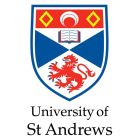Language:
English
Subject area: journalism and information
Qualification: MSc
Kind of studies: full-time studies, part-time studies
Information
Information is any entity or form that provides the answer to a question of some kind or resolves uncertainty. It is thus related to data and knowledge, as data represents values attributed to parameters, and knowledge signifies understanding of real things or abstract concepts. As it regards data, the information's existence is not necessarily coupled to an observer (it exists beyond an event horizon, for example), while in the case of knowledge, the information requires a cognitive observer.
Information Technology
Information technology (IT) is the use of computers to store, retrieve, transmit, and manipulate data, or information, often in the context of a business or other enterprise. IT is considered to be a subset of information and communications technology (ICT).
Technology
Technology ("science of craft", from Greek τέχνη, techne, "art, skill, cunning of hand"; and -λογία, -logia) is first robustly defined by Jacob Bigelow in 1829 as: "...principles, processes, and nomenclatures of the more conspicuous arts, particularly those which involve applications of science, and which may be considered useful, by promoting the benefit of society, together with the emolument [compensation ] of those who pursue them" .
Technology
We cannot idealize technology. Technology is only and always the reflection of our own imagination, and its uses must be conditioned by our own values. Technology can help cure diseases, but we can prevent a lot of diseases by old-fashioned changes in behavior.
President Bill Clinton Remarks at Knoxville Auditorium Coliseum, Knoxville, Tennessee (10 Oct 1996) while seeking re-election. American Presidency Project web page.
Information Technology
Our exploration of emergent social structures across domains of human activity and experience leads to an over-arching conclusion: as an historical trend, dominant functions and processes in the Information Age are increasingly organized around networks. Networks constitute the new social morphology of our societies, and the diffusion of networking logic substantially modifies the operation and outcomes in processes of production, experience, power, and culture. While the networking form of social organization has existed in other times and spaces, the new information technology paradigm provides the material basis for its pervasive expansion throughout the entire social structure.
Manuel Castells (1996) The Rise of the Network Society: The Information Age: Economy, Society, and Culture Volume I (Information Age Series). p. 500.
Information
Data, seeming facts, apparent associations-these are not certain knowledge of something. They may be puzzles that can one day be explained; they may be trivia that need not be explained at all.
Kenneth Waltz, Theory of International Politics (1979), Ch. 1 : Laws and Theories

